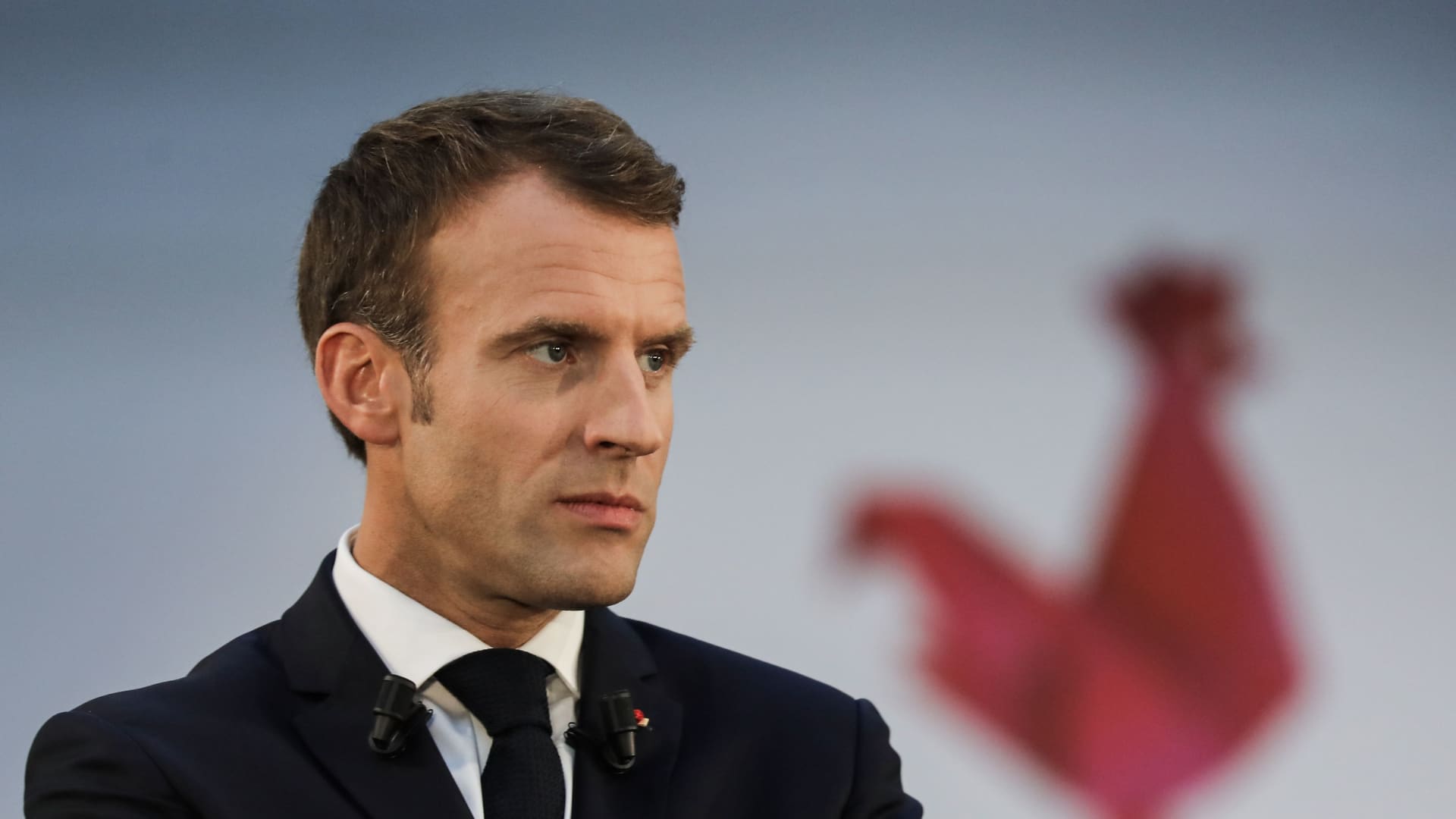French President Emmanuel Macron is going at it again.
A new pension reform proposal was presented Tuesday that included plans to raise France’s retirement age — which is expected to face some significant backlash in the country.
Macron is serving his second term as France’s president but overhauling the pension system is a long-standing promise that dates all the way back to when he was first elected in 2017.
France’s legal retirement age is currently 62 — lower than many developed markets, including much of Europe and the U.S. The public sector also has “special regimes,” or sector-specific deals that allow workers to retire before they’re 62.
In late 2019, Macron’s government proposed a single, points-based system, which enabled a person to retire once they had gained a certain number of points. The idea was a harmonization of the rules across sectors.
But the plan was met with uproar. Public sector workers — arguably the ones with the most to lose from potential reforms — protested for several days in some of the country’s biggest strikes in decades. Amid such strong opposition and the coronavirus pandemic, Macron decided in early 2020 to put the plans on hold.
This year will be one of pension reform.Emmanuel MacronPresident of France
There was some talk of revisiting the plans in early 2022, but it was judged to be too close to the presidential election, which took place in April last year.
“This year will be one of pension reform, aiming to balance our system in the years and decades to come,” Macron said during his New Year’s address.
“As I promised you, this year will indeed be that of a pension reform, which aims to ensure the balance of our system for the years and decades to come.”
He added that he wants to conclude negotiations in time for new rules to be applicable from the end of summer 2023.
“There will be disruption, there will be strikes, [but Macron] has decided to go quick: the current procedure is supposed to last no more than 90 days,” Renaud Foucart, senior lecturer in economics at Lancaster University, told CNBC’s “Squawk Box Europe” on Tuesday morning.
“Quick and dirty maybe, but much more likely to pass than five years ago,” he added.
Étienne Ollion, sociology professor at Ecole Polytechnique, told CNBC’s “Street Signs Europe” on Tuesday that Macron “is keen on keeping the image of a reformist president.”
His first term was dominated by key reforms, touching on items such as labor laws and taxation.
What was unveiled?
Speaking at a news conference Tuesday, French Prime Minister Elisabeth Borne said the government was planning to raise the retirement age to 64 from 62 by 2030.
“I am well aware that changing our pension system raises questions and fears among the French people,” Borne said, according to a Reuters translation.
In the past, Macron has suggested that this could be raised from 62 to 65, but at a gradual pace with increases of about four months per year until 2031.
Macron’s first proposal, from 2019, also envisaged addressing the so-called special regimes.
Any new change to these accords is likely to lead to backlash from the industries affected.
France’s comparably low retirement age is a drag on its public finances. The country’s Pensions Advisory Council has reportedly estimated a deficit in the pension system of around 10 billion euros ($10.73 billion) each year between 2022 and 2032.
Borne added Tuesday that “nothing is final” and that the new bill presented in the next few weeks would start a discussion on social care in the country. She said the reforms would also put in place a guaranteed minimum benefit of around 1,200 euros ($1,288) a month.
